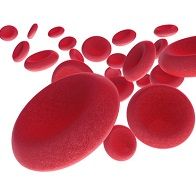Article
Anemia Increases Mortality Rate in Acute Stroke, According to Study
Author(s):
Patients with anemia who experience stroke are more likely to die, according to evidence in a new study. Results of previous studies examining the association between anemia and stroke mortality have been conflicting.

Patients with anemia who experience stroke are more likely to die, according to evidence in a new study. In a review published in the Journal of the American Heart Association, Raphae Barlas, MA, of the Epidemiology Group at the Institute of Applied Health Sciences in Aberdeen, UK, and colleagues, describe how they systematically assessed the association between hemoglobin levels and anemia and their impact on mortality in stroke patients.
Results of studies examining the association between anemia and stroke mortality have been conflicting, although the authors say that “anemia has been independently associated with increased mortality in a variety of conditions including chronic kidney disease, heart failure, and acute coronary syndromes.” Previous studies, however, have had small sample sizes, and lacked information about the amount of stroke prevention medications patients were receiving.
The authors say their aim was to assess “the impact of admission hemoglobin levels and anemia on stroke mortality at different time points up to 1-year follow-up.” In order to do so, they conducted a systematic review and meta-analysis, “to further quantify the impact of admission hemoglobin and anemia on stroke mortality outcomes,” they say.
The study included 8,013 patients who were admitted to Norfolk and Norwich University Hospital between January 2003 and May 2015 with acute stroke. The systematic review included 20 studies, so a total of 24,816 participants were included in the meta-analysis.
The researchers found that “low hemoglobin levels were associated with older age, increased stroke severity, higher prestroke disability, and the increased comorbidity burden.” Although those associations seem to indicate confounders, the researchers say, “we found anemia to be independently associated with mortality subsequent to making the appropriate adjustments.”
It is not clear whether or not interventions could improve outcomes for anemic stroke patients. The authors suggest that a randomized, controlled trial could establish guidelines for the optimum hemoglobin ranges for patients with acute stroke.
“In conclusion, we showed that a significant proportion of stroke patients have anemia at the time of stroke onset and that this is associated with increased mortality up to 1 year,” say the researchers.
Related Coverage:
- Study Finds Risk Factors for Intracranial Bleeds
- Evaluating Ticagrelor's Stroke-Prevention Efficacy in High-Risk Patients
- New Oral Anticoagulants vs. Warfarin: Same Stroke Prevention, Less Internal Bleeding





